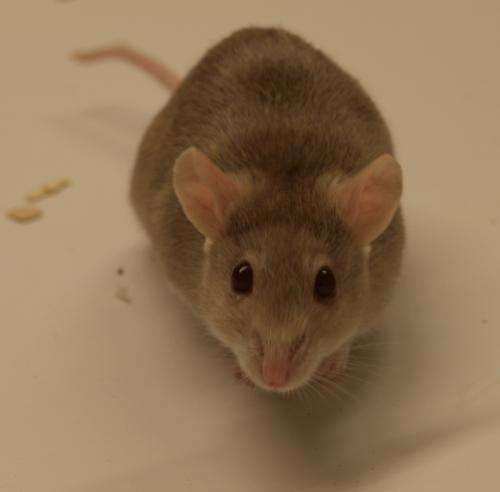Skin tumor vaccine shows promise in wild mice, rising hope for transplant patients

Papillomaviruses (linked to cervical cancer when they infect the mucosal tissue in the female reproductive tract) can also infect normal skin, where they cause warts and possibly non-melanoma skin cancer, mostly in immune-suppressed organ transplant patients. An article published on February 20th in PLOS Pathogens suggests that vaccination might prevent virus-associated benign and malignant skin tumors.
Transplant recipients need to take immunosuppressive drugs for the rest of their lives to prevent rejection of the transplanted organ. Among the side effects of these drugs, widespread abnormal skin growths have large impact on the patients' quality of life. These can also progress to skin cancer, for which transplant patients have a 250-fold elevated risk. Sabrina Vinzón and Frank Rösl, from the German Cancer Research Center in Heidelberg, and colleagues sought to test whether papillomavirus vaccination around the time of transplantation could prevent the skin lesions seen in patients.
They used a rodent species (the multimammate mouse) as a unique pre-clinical model in which skin papillomaviruses are present and usually transmitted to young offspring. This mimics the situation in humans—most of us are infected with skin papillomaviruses as children and carry the virus in skin cells for the rest of our lives. However, these animals are more sensitive to the virus than humans with an intact immune system: most of them spontaneously develop benign skin tumors as well as malignant ones.
The scientists made a vaccine against the rodent skin papillomavirus that was modeled on the highly efficient and widely approved HPV vaccine against human papillomaviruses that protects against cervical cancer and genital warts. When they tested that vaccine in their animals, they found that vaccination completely prevented the appearance of benign and malignant skin tumors.
Vaccination does not eliminate the virus, but virus numbers in skin cells are much lower in the vaccinated animals, so the vaccine succeeds in educating and boosting the immune system in a way that it can keep the virus in check. Importantly, it can do so even in mice treated with immune-suppressive drugs.
Given that the vaccine works even when given to already infected animals, and continues to suppress the virus even when they are treated with immune-suppressive drugs—conditions that are similar to immunosuppressed patients who were infected with papillomaviruses as children—the scientists conclude that "these findings provide the basis for the clinical development of potent vaccination strategies against cutaneous [skin] HPV infections and HPV-induced tumors, especially in patients awaiting organ transplantation".
More information: Vinzón SE, Braspenning-Wesch I, Müller M, Geissler EK, Nindl I, et al. (2014) Protective Vaccination against Papillomavirus-Induced Skin Tumors under Immunocompetent and Immunosuppressive Conditions: A Preclinical Study Using a Natural Outbred Animal Model. PLoS Pathog 10(2): e1003924. DOI: 10.1371/journal.ppat.1003924















